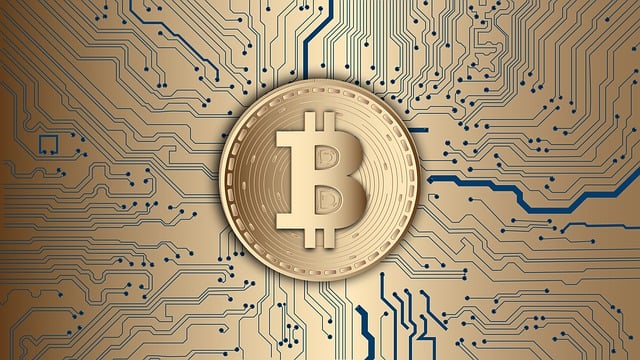The regulatory landscape for cryptocurrency, shaped by economic, social, and political factors, varies globally from hands-off to comprehensive frameworks. While some nations embrace blockchain tech and crypto, others remain cautious due to consumer protection, market integrity, and tax evasion concerns. Decentralized Finance (DeFi), a game-changer aiming to democratize global finance via smart contracts, presents challenges for traditional regulators due to its decentralized nature. A unified global approach to regulation is crucial to foster fair competition, investor protection, and sustainable DeFi development, as the ecosystem expands and the tech's potential impact on traditional banking grows. Clear, consistent, and supportive regulations are essential to balance DeFi growth with risk mitigation.
In the rapidly evolving landscape of digital assets, cryptocurrency regulatory frameworks are navigating uncharted territories. This article offers a comprehensive overview, exploring global perspectives on understanding cryptocurrency regulations and the rise of decentralized finance (DeFi). We delve into the transformative potential of DeFi while scrutinizing the regulatory challenges that shape its growth trajectory. Furthermore, we analyze the profound implications for the future of digital assets, highlighting the dynamic interplay between innovation and governance in this nascent industry.
- Understanding Cryptocurrency Regulations: A Global Perspective
- Decentralized Finance (DeFi): Unlocking New Frontiers
- Regulatory Challenges and the Impact on DeFi's Growth
- Potential Implications for the Future of Digital Assets
Understanding Cryptocurrency Regulations: A Global Perspective

The regulatory landscape for cryptocurrency is a complex and ever-evolving field, with each country adopting its approach based on unique economic, social, and political considerations. Understanding global crypto regulations is crucial, especially given the decentralized nature of this asset class and its potential impact on the financial sector, including the rise of decentralized finance (DeFi). While some nations have embraced blockchain technology and cryptocurrencies, others remain cautious due to concerns surrounding consumer protection, market integrity, and tax evasion.
A global perspective reveals a wide range of regulatory strategies. Some countries have taken a more hands-off approach, focusing on anti-money laundering (AML) and know-your-customer (KYC) measures while allowing for innovation. Others have implemented comprehensive frameworks, setting clear guidelines for crypto exchanges, initial coin offerings (ICOs), and digital asset custody. The regulatory response to DeFi, in particular, is an area of growing interest as these innovative financial products challenge traditional banking models. As the cryptocurrency ecosystem continues to expand, a harmonized global approach to regulation may become essential to ensuring fair competition, investor protection, and the sustainable growth of this disruptive technology.
Decentralized Finance (DeFi): Unlocking New Frontiers

Decentralized Finance (DeFi) represents a groundbreaking innovation within the cryptocurrency space, promising to reshape traditional financial systems. By leveraging blockchain technology, DeFi platforms aim to create open and accessible financial services, eliminating the need for intermediaries like banks. This revolutionary concept unlocks new frontiers, offering individuals more control over their assets and fostering financial inclusion on a global scale.
The potential impact of DeFi is profound, as it has the ability to democratize finance by providing lending, borrowing, and investment opportunities to a broader audience. Through smart contracts, DeFi allows for transparent and automated transactions, reducing risks and opening doors for innovative financial products. As the DeFi ecosystem continues to evolve, its influence on global financial landscapes cannot be overlooked, setting the stage for a more inclusive and efficient economic future.
Regulatory Challenges and the Impact on DeFi's Growth

The decentralized nature of cryptocurrency and blockchain technology presents unique challenges for traditional regulatory bodies. As decentralized finance (DeFi) gains traction, regulators worldwide are grappling with how to apply existing financial laws and adapt them to this new digital landscape. One of the primary hurdles is achieving international consistency in regulations due to varying legal frameworks and political systems across countries. This diversity can create a fragmented environment, impacting the global reach and liquidity of DeFi projects.
The regulatory challenges extend to ensuring consumer protection, preventing illicit activities like money laundering and fraud, and maintaining market stability. The decentralized structure makes it harder to track and regulate transactions, as they occur across borders and on public ledgers. As a result, the rapid growth of DeFi could be significantly influenced by how effectively regulators address these challenges. The potential impact on DeFi’s development is significant; clear, consistent, and supportive regulations can foster innovation while protecting investors and maintaining financial integrity.
Potential Implications for the Future of Digital Assets

The evolving regulatory landscape for cryptocurrencies has significant implications for the future of digital assets, particularly decentralized finance (DeFi). As governments and financial institutions gain a better understanding of these innovative technologies, they are likely to implement policies that foster growth while mitigating risks. This could lead to a more integrated DeFi space, where traditional financial services and blockchain-based alternatives coexist harmoniously.
Regulatory clarity can attract institutional investors and bring DeFi to the mainstream, potentially increasing liquidity and accessibility. However, it also opens doors for enhanced scrutiny, compliance requirements, and potential licensing frameworks. The key will be striking a balance that encourages innovation while ensuring consumer protection and market stability.
